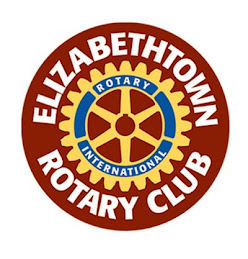The 4-Way test of the things we think, say or do
First...Is it the TRUTH?
Second...Is it FAIR to all concerned?
Third...Will it build GOODWILL and BETTER FRIENDSHIP?
Fourth...Will it be BENEFICIAL to all concerned?
For many decades Rotary clubs and Rotarians around the world have used The 4-Way Test asd an instrument to develop respect and understanding among peoples. It is being used successfully around the world in business, government and schools as an effective measuring stick for conduct. Get in the habit of checking your thoughts, words and deeds against The 4-Way Test...and like the experience of others, it will help you become happier and more successful. Here is the story of The 4-Way Test by its originator.
STORY OF THE 4-WAY TEST
By Herbert J.Taylor (President of R.I. 1954-55 as shown in the above photo at Rotary's Fiftieth Anniversary) See end of story for more information about Herbert Taylor
Back in 1932 I was assigned, by the Creditors of the Club Aluminum Company, the task of saving the company from being closed out as a bankrupt organization. The company was a distributor of cookware and other household items. We found that the company owed its creditors over $400,000 more than its total assets. It was bankrupt but still alive. At that time we borrowed $6,100 from a Chicago bank to give us a little cash on which to operate.
While we had a good product, our competitors also had fine cookware with well advertised brand names. Our company also had some fine people working for it, but our competitors also had the same. Our competitors were naturally in much stronger financial condition that we were.
With tremendous obstacles and handicaps facing us we felt that we must develop in our organization something which our competitors would not have an equal amount. We decided it should be the character, dependability and service mindedness of our personnel. We determined, first, to be very careful in the selection of our personnel and, secondly, to help them become better men and women as they progressed with our company.
We believed that "In right there is might" and we determined to do our best to always be right. Our industry, as was scores of other industries, had a code of ethics-but it was long, almost impossible to memorize and therefore impractical. We felt that we needed a simple measuring stick of ethics which everyone in the company could memorize. We also believed that the proposed test should not tell our people what they must do, but ask them questions which would make it possible for them to find out whether their proposed plans, policies, statements or actions were right or wrong.
We had looked in available literature for such a short measuring stick of ethics but could not find a satisfactory one. One day in July of 1932, I decided to pray about the matter. That morning I leaned over my desk and asked God to give us a simple guide to help us think, speak and do that which was right. I immediately picked up a white card and wrote out The 4 Way Test of the things we think, say or do as follows:
- 1. Is it the truth?
- 2. Is it fair to all concerned?
- 3. Will it build good will and better friendships?
- 4. Will it be beneficial to all concerned?
After about sixty days of faithful constant effort on my part to live up to the The 4-Way Test I was thoroughly sold on its great worth and at the same time greatly humiliated, and at times discouraged, with my own performance as president of the company. I had, however, made sufficient progress in living up to The 4 Way Test to feel qualified to talk to some of my four department heads. One was a Roman Catholic, the second a Christian Scientist, the third an Orthodox Jew and the fourth a Presbyterian.
I asked each man whether or not there was anything in the test which was contrary to the doctrines and ideals of his particular faith. All four agreed that truth, justice, friendliness and helpfulness coincided with their religious ideals and if constantly applied in business should result in greater success and progress. These four agreed to use the test in checking proposed plans, policies, statements and advertising of the company. Later all employees were asked to memorize and use the test in their relations with others.
Over the years steady progress was made in reaching the ideals expressed in the The 4-Way Test. From a bankrupt condition in 1932 our company within a twenty year period had paid its debt in full, paid its stockholders over one million dollars in dividends and was worth over two million dollars [Editors note: This was written in about 1952].
Intangible dividends from the use of The 4-Way Test have been even greater than the financial ones. We have enjoyed a constant increase in the goodwill, friendship and confidence of our customers, our competitors and the public... and what is even more valuable... a great improvement in the moral character of our own personnel.
You cannot constantly apply The 4-Way Test to all your relations with others in business without getting into the habit of doing it in your home, social and community life. You thus become a better parent, a better friend and a better citizen.
Editor's note: Herbert Taylor was born April 18, 1893 in Pickford, Michigan. He first became a Rotarian in 1921 in Paulis Valley, Oklahoma and served as president of that club in 1924-1925. In 1927, Herbert Taylor became a member of the Rotary Club of Chicago and held the classification of: Aluminum Cooking Utensils Distributor. He served as President 1939-1940. In 1944-46 he served as a Director of R.I. and Vice president, R.I. 1945-46 and President of Rotary International during the "Golden Anniversary" of Rotary in 1954-55.
.jpg)
No comments:
Post a Comment